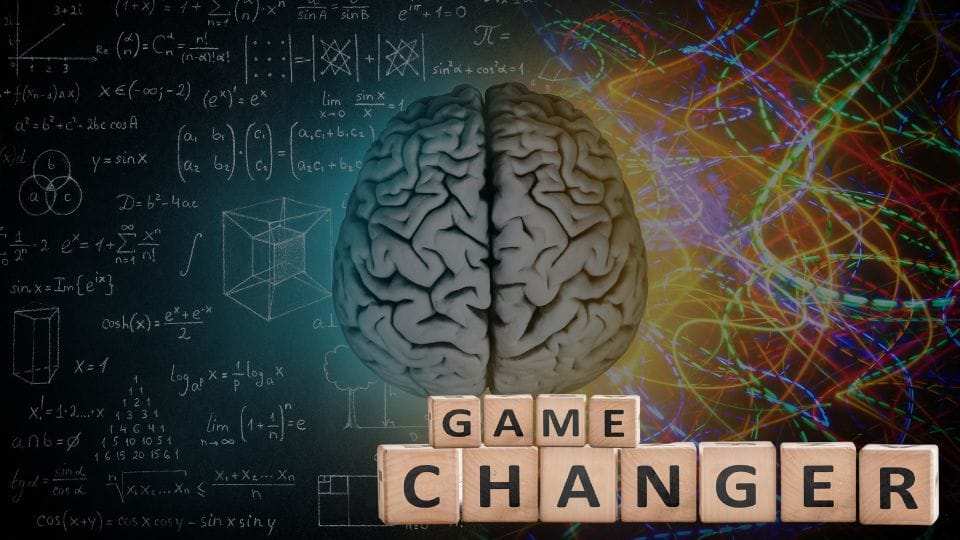Here, we’ll show you 5 ways to increase serotonin while keeping dopamine and cortisol in check. Will it help you stop gambling? It can be the game-changer you need!
Sure, we have a shocker for you, something you might see as a challenge, but most things are easy to do, and they can profoundly improve your mood and your odds of overcoming your gambling addiction and becoming a happier person! (Long but important sentence!)
Are you ready?
Yes, exercise, reducing stress, and healthy good will also improve your chances. But those are given, right? (And hard work…) Let’s see what you can do today to improve your hormone balance and feel better. Let’s ease into it with a slow yet effective start!
Sunlight Exposure
Let’s get you outside every day. #Sunlight exposure can affect our body’s production and regulation of certain neurotransmitters* and hormones. Here’s how sunlight interacts with serotonin, dopamine, and cortisol:
*(Fancy word for Neurotransmitters are chemical messengers in the brain that help our cells talk to each other.)
Serotonin:
- Increased Production: Exposure to bright sunlight during the daytime can increase the production of serotonin in the brain.
- Regulation of Sleep-Wake Cycle: Sunlight exposure, especially in the morning, helps regulate our circadian rhythms, closely tied to serotonin production and its conversion to melatonin at night. Proper circadian rhythm regulation can lead to better mood and sleep patterns.
Dopamine:
- UV Light: Some studies suggest that ultraviolet (UV) rays from sunlight can increase the release of dopamine in the skin and possibly the eyes.
- Eye Health: Dopamine is also crucial for eye health and function. Adequate sunlight exposure, especially in early life, helps in proper eye development and can reduce the risk of developing myopia (nearsightedness). Dopamine release in the retina, triggered by light exposure, is thought to play a role in this.
Cortisol:
- Circadian Rhythm Regulation: Sunlight exposure, especially in the morning, helps set the body’s internal clock, influencing cortisol production. Cortisol follows a diurnal pattern: cortisol is higher in the morning to help wake us up and gradually decreases throughout the day. Proper sunlight exposure can help ensure this pattern stays regulated.
- Potential Reduction in Stress: While sunlight directly influences cortisol levels through circadian rhythm regulation, indirect effects like increased outdoor activity and the associated benefits of nature exposure can also reduce stress levels.
It’s worth noting that while sunlight has these positive effects, excessive exposure, especially during peak UV times, can be harmful. It’s always recommended to balance sun exposure with protective measures like sunscreen, hats, and sunglasses to protect against UV-related harms like skin cancer and premature aging.
Laugh more
#Laughter is the best medicine. Laughter has numerous health benefits, and its effects on the brain and body are subjects of ongoing research. Laughter is one of the easiest ways to improve your health (who doesn’t like to laugh). We have a dedicated block for laughter in our health course and our course about creating meaning in your life. Here’s what is currently known about the impact of laughter on serotonin, dopamine, and cortisol:
Serotonin:
- Potential Increase: While the direct link between laughter and serotonin levels isn’t as well-established as with some other neurotransmitters, positive social interactions and mood elevation, often associated with laughter, can potentially lead to increased serotonin release. Serotonin is pivotal in regulating mood, and its increase often leads to feelings of well-being and happiness.
Dopamine:
- Increased Production: Laughter is associated with the release of dopamine. When you laugh, your brain recognizes it as a pleasurable experience and releases dopamine, which makes you feel good. It’s one of the reasons why laughing can feel so rewarding and uplifting.
Cortisol:
- Decreased Levels: Laughter releases endorphins which help reduce the level of cortisol. Studies have found that laughter therapy and laughter-based exercises can lower cortisol levels, suggesting a potential stress-reducing effect.
Apart from these effects on specific neurotransmitters and hormones, laughter also promotes the release of endorphins (the body’s natural painkillers), improves immune function, and enhances blood flow, which is beneficial for heart health. Given these benefits, finding reasons to laugh and incorporating humor into daily life can be an excellent strategy for overall well-being.
Okay, you had an easy start! Now it’s time for a tough one! But if you do it, it can have tremendous health benefits!
Cold Exposure
This is a personal favorite!I even built my own cold plunge! It’s cold, but it works! #ColdBaths – Cold-water immersion or cold showers have many perceived health benefits.

Here’s a rundown of the potential effects of cold baths on serotonin, dopamine, and cortisol:
Serotonin:
- Cold exposure can lead to an increase in serotonin production, which might be responsible for the mood-enhancing effects often reported by those who engage in cold water swimming or showers. This is because cold exposure can increase the tryptophan hydroxylase rate, an enzyme involved in serotonin production.
- The euphoric feeling some people experience after a cold-water dip (often called the “cold water high”) may be linked to increased serotonin levels.
Dopamine:
- Evidence suggests that cold exposure can increase dopamine levels in the brain, particularly in the reward and pleasure areas. It might explain the mood-boosting and energizing effects some people report after cold baths. Usually, dopamine is short-lived. But cold exposure has shown increases in dopamine baseline levels by 300-500% an hour after the immersion.
- The boost in dopamine might also be related to the body’s adaptive response to the initial stress of the cold, leading to a kind of exhilaration or high once the initial shock subsides.
Cortisol:
- Cortisol is often called the “stress hormone,” as it’s produced in response to stressors. Cold water can be a physical stressor, prompting the adrenal glands to release cortisol.
- Short, acute cold exposure might temporarily elevate cortisol levels due to the body’s immediate stress. However, regular cold exposure, like routinely cold showers, might help adapt the body to stress over time, potentially leading to lower cortisol levels in the long run.
- Some studies suggest that cold water immersion can modulate cortisol responses and potentially improve resilience to stress.
Cold baths or showers are a challenge. It’s cold, but it feels great afterward. It can help with stress, anxiety and increase metabolism. It’s important to note that while many people find cold baths beneficial, they might not be suitable for everyone, especially those with certain health conditions. It’s always best to consult a healthcare professional before beginning a new health regimen or significantly changing one’s routine.

Helping Others
#HelpingOthers is often referred to as altruistic behavior or acts of kindness. It can have profound effects on our mental and emotional well-being. See our discussion about Pleasure vs. Happiness in the previous article. The body’s neurochemical response to such actions can directly impact our mood and overall health. Here are the potential effects of helping others on serotonin, dopamine, and cortisol:
Serotonin:
- Engaging in acts of kindness and helping others can boost serotonin levels in the brain.
- There’s a phenomenon known as the “helper’s high,” which some partly attribute to increased serotonin levels. It refers to the euphoric feeling one can get after performing a good deed.
- Positive social interactions and feeling valued or needed can stimulate the release of serotonin, reinforcing social bonds and promoting prosocial behavior.
Dopamine:
- Doing good deeds and helping others can also stimulate the release of dopamine. It is why we often feel good after helping someone or doing something kind.
- The release of dopamine in response to altruistic acts reinforces the behavior, making us more likely to want to help again. It is because our brains are hardwired to seek rewards, and the dopamine release provides a neurochemical reward for altruistic behavior.
Cortisol:
- Acts of kindness and social support can reduce feelings of stress and, in turn, lead to decreased cortisol levels. When we help others and engage in positive social interactions can create a sense of belonging, reduce feelings of isolation, and provide emotional support, all of which can counteract stress.
- Acts of kindness increase the release of the happiness hormone Oxytocin, which counteracts cortisol.
Helping others can stimulate the release of neurotransmitters that enhance mood and counteract stress. Not only is it beneficial for the person receiving help, but the helper often experiences positive neurochemical and psychological benefits. We highly recommend you check out our Benefits of Helping Others course on the members’ platform.
Sufficient Sleep
Let’s relax! #Sleep is essential in regulating various neurotransmitters and hormones, impacting our mood, stress levels, and overall brain function. Let’s check out some of the effects of sleep on serotonin, dopamine, and cortisol:
Serotonin:
- Regulation and Replenishment: A proper night’s sleep can help regulate and replenish serotonin levels in the brain. Serotonin has a role in sleep-wake cycles, especially in promoting wakefulness during the day. An imbalance in serotonin can disrupt these cycles, potentially leading to sleep disorders.
- Mood Regulation: Chronic sleep deprivation can lead to decreased serotonin levels, which has been linked to mood disorders like depression. Maintaining regular sleep patterns can help support healthy serotonin levels and mood regulation.
Dopamine:
- Restoration of Sensitivity: Dopamine is crucial for alertness, motivation, and pleasure. After a day of stimulation, sleep can help restore the sensitivity of dopamine receptors, making you more responsive to pleasurable experiences and increasing motivation and alertness the next day.
- Reduced Dopamine Production at Night: Dopamine levels tend to decrease during the night, especially during REM sleep. This decrease might be a factor in why we’re generally less mobile and less responsive to stimuli during sleep.
Cortisol:
- Decreased production: Sufficient sleep can reduce cortisol levels in the body.
- Stress and Sleep Deprivation: Chronic sleep deprivation can disrupt cortisol rhythms, leading to elevated evening cortisol levels. Elevated cortisol levels at night can make it harder to fall asleep, leading to a vicious cycle of stress and sleep deprivation. (Been there, done that!)
Sleep is a critical regulator of these neurotransmitters and hormones. Disruptions in sleep patterns or chronic sleep deprivation (lack of sleep) can lead to imbalances that affect mood, stress response, alertness, and overall cognitive function. It underscores the importance of quality sleep for optimal brain and body health.
Discussion
We believe a happy person is more resistant to addiction. One way to feel happier is to improve the hormone balance in the body. We see this as one tool in the toolbox to overcome gambling addiction. Most of the things above are easy things you can implement. Test them out and see what works for you.
#PersonalNote Sometimes, I take a cold bath when I feel low. It usually has a positive effect on my mood. My pessimistic feeling (lump in my stomach) disappeared when I exited the water. Perhaps the sense of “achievement” causes that illation; maybe it’s the hormone reaction in the body. To me, it doesn’t really matter. The important thing is that I feel better.
Suppose you feel the urge to gamble. At times, you feel low or depressed. Then one way to get fewer urges could be to increase your serotonin levels. Try out some of the suggestions above and see what works for you.
Good luck!
